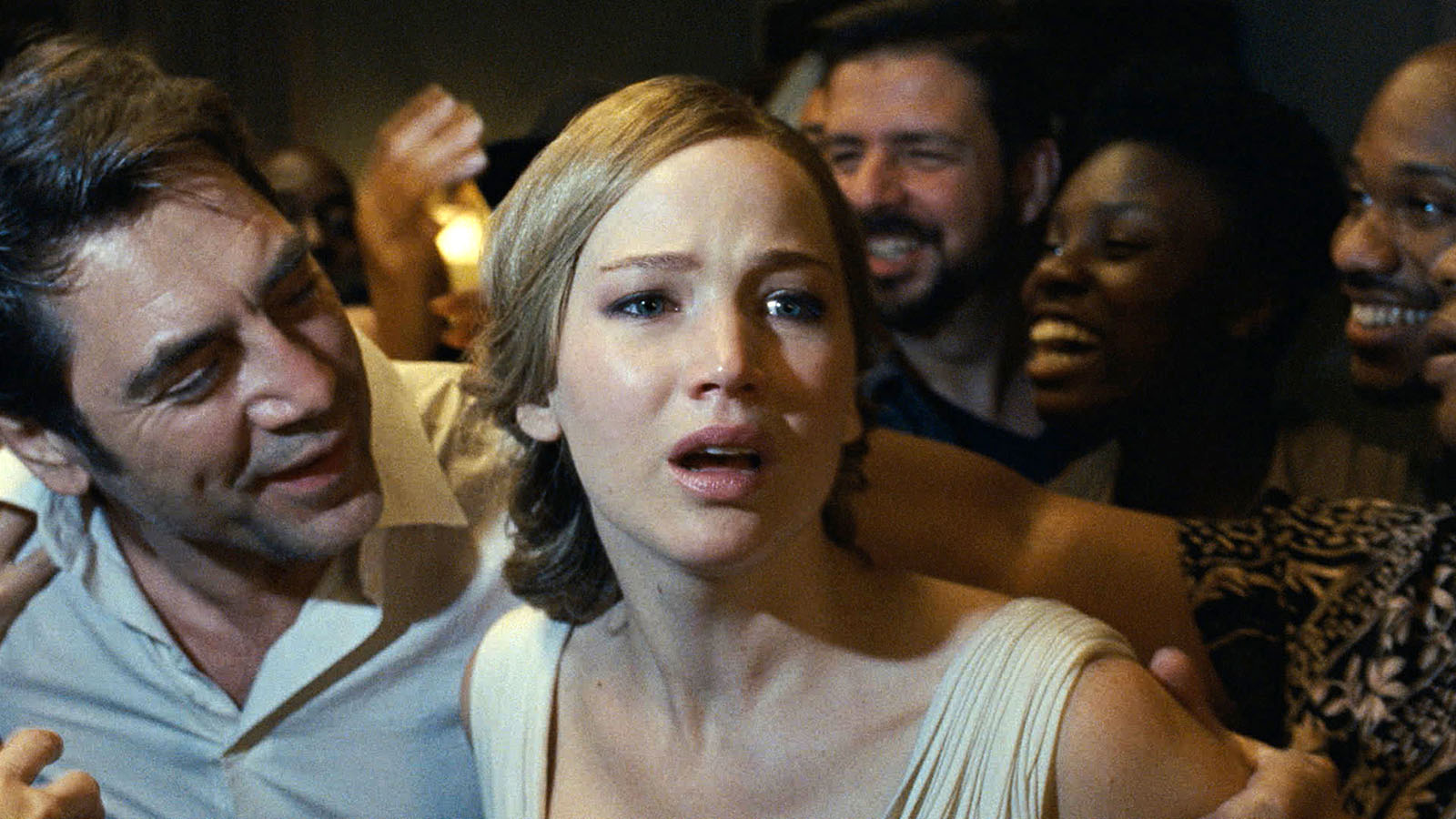
Over 20 years ago I made an agreement with Darren Aronofsky to never write about his work. It was the very end of the last century, in a charming fishing village in eastern Mexico, where a group of his closest friends (including my boyfriend at the time) had rented a small motel to either welcome the new year or see the end of the world, whatever Y2K saw fit. One night Darren and I were both suffering from serious movie withdrawal, so we hopped in the car attempting to find any theater where a halfway decent non-dubbed film was showing. The mission was a failure, and we ended up at a carnival freak show instead, but it was during the car ride that our agreement was made. At that point π (1998) was the only feature he had directed, but even then it was clear to me, and probably to anyone who knew him, that he would go on to make many more.
I do not intend to dishonor our agreement. But I was waiting patiently for the mildly deranged Darren—this is said with pure affection—to gift us with a horror movie, and in 2017 he came closest with mother! (though the harrowing displays of the destructive nature of addiction in 2000’s Requiem for a Dream and obsessive jealousy in 2010’s Black Swan came close). I have no interest in writing a critical analysis, or joining the never-ending conversation about its symbolism, religious or otherwise, but mother! just could not go unacknowledged. To me, a movie of any genre is successful not for its metaphorical value, however noteworthy, but quite simply for its ability to hold your attention. And I sat riveted on opening day, in what was then an unwelcoming, brand-new, overly air-conditioned theater, next to an elderly couple who talked far too frequently and loudly, with my gaze and feelings of tension unbroken.
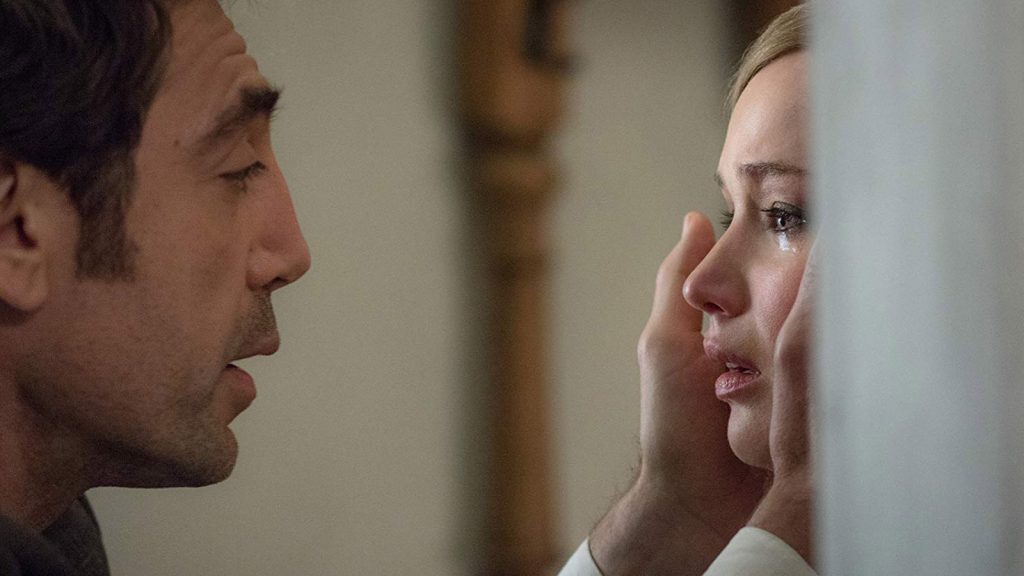
Two days later, a friend wrote me asking what I thought of the film. She agreed that the super-surreal story of a young woman (Jennifer Lawrence) moving to the middle of nowhere to essentially play muse for her much-older poet husband (Javier Bardem) was entertaining, but added that she was pretty certain Darren was a misogynist. I said that putting aside most guys’ inability to really understand, much less write about, women, I didn’t think that was the case, and half-joking that, at the moment, I probably hated men more than he hated women; and she retorted that she was an equal-opportunity misanthrope. But this type of innocent-seeming banter does raise larger issues. When in cinematic discomfort, viewers often grasp for easy (and frequently unfair) accusations—or mask the directors’ intentions with their own overriding beliefs. This is something critics are guilty of, too—not just general viewers. Roger Ebert, for example, hardly known for his advocacy of horror and horror-adjacent films, seemed personally offended in his demolishment of such titles as I Spit on Your Grave and Silent Night, Deadly Night, and by the playful mean-spiritedness of Blue Velvet, calling out David Lynch as a sadist and a misogynist in his film’s horrific treatment of Isabella Rossellini’s character.
But, to state the obvious, what happens behind the scenes is rarely in accordance with what appears on-screen. A film may depict hatred toward women, but that doesn’t necessarily mean that the director (or screenwriter and beyond) is a misogynist. Misogyny exists everywhere. And it’s especially rampant in the film business, or at least the transgressions are more highly publicized, and genre filmmakers took the brunt of it for a while—until mainstream Hollywood, with its outsized egos, wealth, and power, went on to steal the show, led, of course, by a certain disgusting producer. That rapist’s imprisonment aside, though, #MeToo has not gone on to change all that much, and the line between true punishable acts and the interpretation of on-screen depictions of abuse toward women as behind-the-scenes misogyny will keep on being blurred.
Ten years ago, during the Q&A for the artier, less-sleazy remake of Maniac that screened in Scary Movies, an annual horror festival I co-programmed for what’s now called Film at Lincoln Center, a young female audience member very angrily accused the director, Franck Khalfoun, of misogyny. She was obviously shaken by the violence she had just witnessed—understandably, as Maniac’s seriously disturbed antagonist does brutally murder then scalp women—and without time to process what she had seen, she wanted to place immediate blame on somebody for the agony she’d experienced. Firmly holding his own, Khalfoun explained that, yes, he had made a film about a character with a very complicated view of women, but that it was not a reflection of his own beliefs. Exploring this type of hatred is important in any forum, so why not in horror films, where it’s common practice to delve into the disturbing but often fascinating nature of serial killers and other nefarious sorts? These characters, based directly on real-life figures or influenced by their behaviors, are not guided by morals, so why would they be portrayed that way on-screen? And why should a filmmaker be attacked for wanting to contend with them?
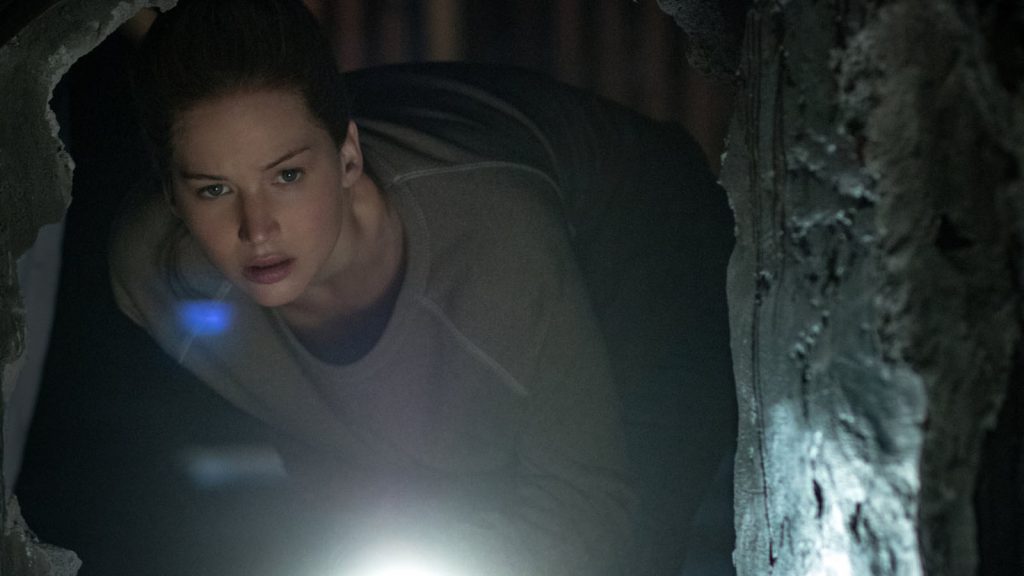
However, the other side can be confusing and quite frustrating. Oftentimes, if a man is shown inflicting pain on a woman, or if a female character, whether a sexual partner or an abusive mother figure, is portrayed in extremely harsh light, the film is stamped “misogynistic,” but if the central villain is a strong, sexy woman—a “clever” role reversal, of sorts—it’s automatically considered “feminist.” At a Q&A for Knock Knock following a Sundance midnight screening three years after the Maniac one, director Eli Roth and star Keanu Reeves both appeared totally high on the idea that they had created an important film promoting female strength and empowerment. The two cute, young, and pretty obviously psychotic women who enter the home of the mostly decent married man played (very well) by Reeves seduce him and then destroy his life, a senseless game for what purpose? Punishment for being unfaithful? There is nothing remotely feminist about this, or about any Eli Roth film for that matter (and certainly not Hostel: Part II, despite his impassioned claims); their juvenility only evokes a false idea of feminism that other revenge films like American Mary and Ms .45 have managed to transcend.
Regardless of the inevitable titles unworthy of praise, I’ve devoted a good portion of my life to defending horror movies—their motivations and values. Every genre has its strengths and weaknesses, but I will never relent on the belief that horror offers some of the strongest, boldest voices in all of cinema. And taking the genre’s regular viewership numbers into consideration, moviegoers remain exceedingly interested in hearing them. We live in horrific times, and even as escalating real-world violence further desensitizes us, for certain people there’s still something cathartic about seeing fear played out in varying forms. Others, though, having already reached their capacity of terror, simply choose to escape into the safety of lighter viewing.
That’s partly why the response to mother! was so divided. Another friend wrote me after seeing the film, claiming that watching it had been torture. I too felt like I was being tortured, but to me the assault was entirely exhilarating; this was the director’s intention and he succeeded. It’s like when an audience cheers after an especially inventive kill scene. Art is not wish-fulfillment, nor should it be. Movies are entertainment, and a murder done well should be treated like any other piece of bravura filmmaking. The visionary mother! may feature an angel-faced woman whose only known purpose is to literally create a home for her husband; she may be taken advantage of, demoralized, ignored, brutalized, and ultimately sacrificed for a man and his fame, but I never felt that the director was looking to find pleasure in a woman’s pain. The film is aggressive and maddening and sometimes (intentionally) comically absurd. Yet, as a woman, I can say it’s the best, most clear-sighted thing Aronofsky’s done so far, and an uncomfortable experience well worth enduring, offering not just catharsis but also another way to understand our increasingly nightmarish world.
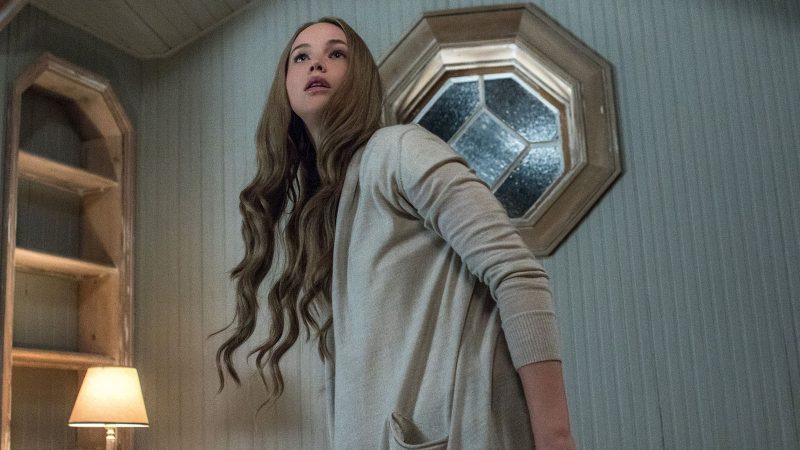
is a writer, editor, and horror programmer based in New York. She is the editor of Bloodvine and her writing has appeared in publications such as The New York Times, Film Comment, and Rolling Stone.
About a decade ago, an intriguing new contender stepped into the horror arena. It wasn’t so much a grandstanding moment as a quiet entrance from out of the blue, subtly sneaking into...
BY LAURA KERN | July 12, 2024
Audiences and filmmakers alike can’t seem to get enough of body horror. The Soskas went for it full-throttle with their 2019 remake of Cronenberg’s Rabid (an early work by one of the subgenre’s originators). But seven years prior...
BY LAURA KERN | April 19, 2022
Stripped to its essentials, the story could be an especially bleak, brazenly sleazy fairy tale. Thana, a young seamstress working in Manhattan’s Garment District, is raped not once, but twice, in the space of perhaps one hour...
BY JOSÉ TEODORO | October 22, 2025
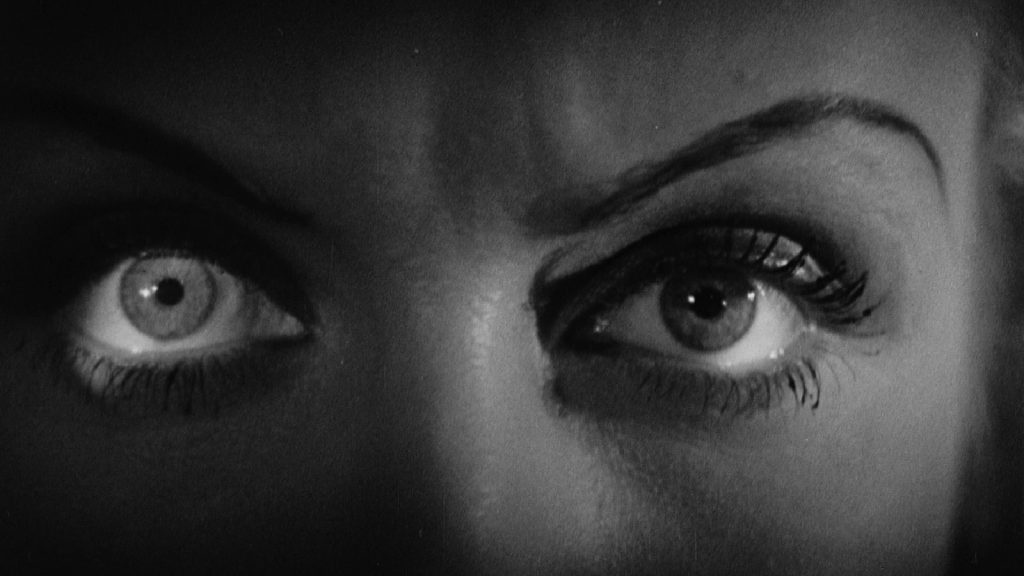
This pre-Code offering packs a lot of story into its typically brisk running time, with several plot threads weaving together a (not always successful) tapestry of spooky and criminal doings.
READ MORE >
BY ANN OLSSON | Month 00, 2021
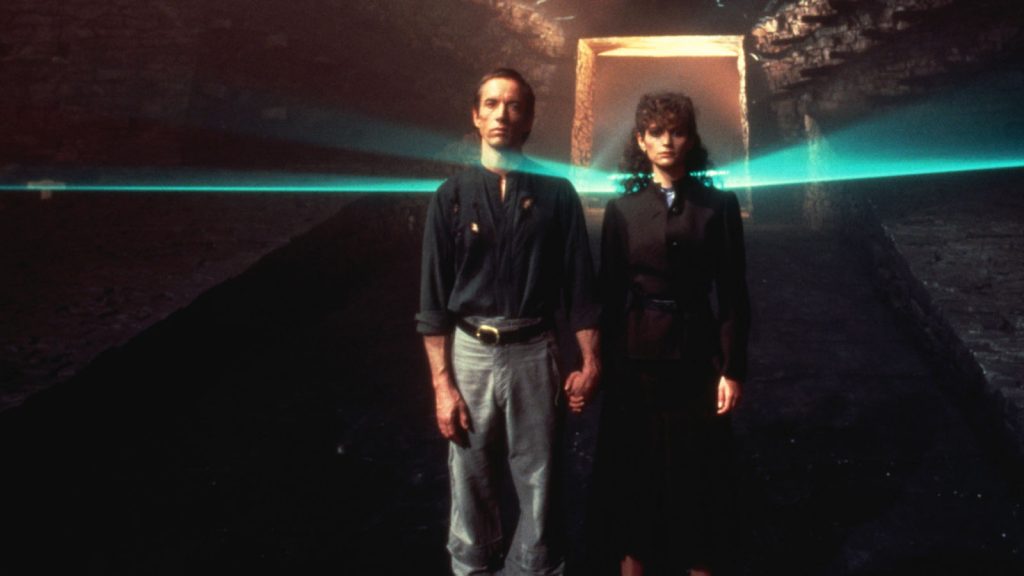
In what could be the fastest-resulting rape revenge movie, a drunken lout brutally forces himself on Ida, the young woman who doesn't return his affections, during a party over Labor Day.
READ MORE >
BY LAURA KERN | Month 00, 2021
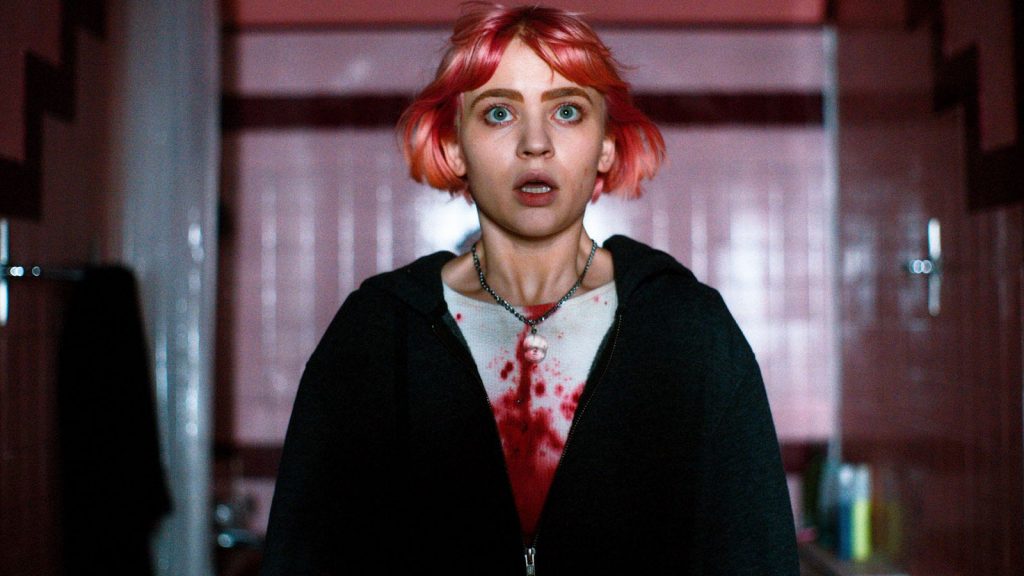
Beast is a lot of movies in one package - fractured fairy tale, belated-coming-of-age story, psychological drama, regional horror film - but above all it's a calling card for its leading lady, Jessie Buckley.
READ MORE >
BY LAURA KERN | Month 00, 2021